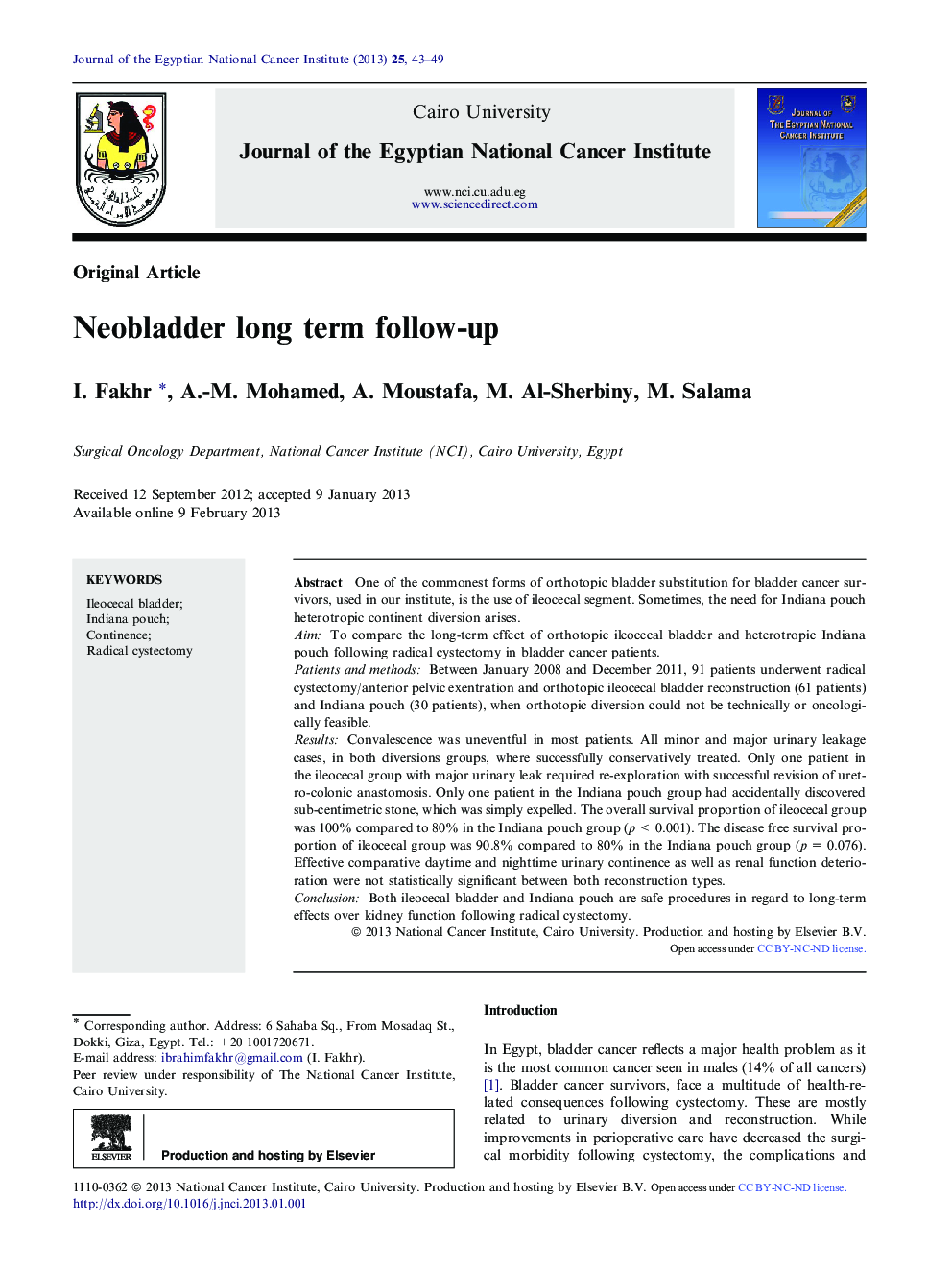| Article ID | Journal | Published Year | Pages | File Type |
|---|---|---|---|---|
| 3988953 | Journal of the Egyptian National Cancer Institute | 2013 | 7 Pages |
One of the commonest forms of orthotopic bladder substitution for bladder cancer survivors, used in our institute, is the use of ileocecal segment. Sometimes, the need for Indiana pouch heterotropic continent diversion arises.AimTo compare the long-term effect of orthotopic ileocecal bladder and heterotropic Indiana pouch following radical cystectomy in bladder cancer patients.Patients and methodsBetween January 2008 and December 2011, 91 patients underwent radical cystectomy/anterior pelvic exentration and orthotopic ileocecal bladder reconstruction (61 patients) and Indiana pouch (30 patients), when orthotopic diversion could not be technically or oncologically feasible.ResultsConvalescence was uneventful in most patients. All minor and major urinary leakage cases, in both diversions groups, where successfully conservatively treated. Only one patient in the ileocecal group with major urinary leak required re-exploration with successful revision of uretro-colonic anastomosis. Only one patient in the Indiana pouch group had accidentally discovered sub-centimetric stone, which was simply expelled. The overall survival proportion of ileocecal group was 100% compared to 80% in the Indiana pouch group (p < 0.001). The disease free survival proportion of ileocecal group was 90.8% compared to 80% in the Indiana pouch group (p = 0.076). Effective comparative daytime and nighttime urinary continence as well as renal function deterioration were not statistically significant between both reconstruction types.ConclusionBoth ileocecal bladder and Indiana pouch are safe procedures in regard to long-term effects over kidney function following radical cystectomy.
